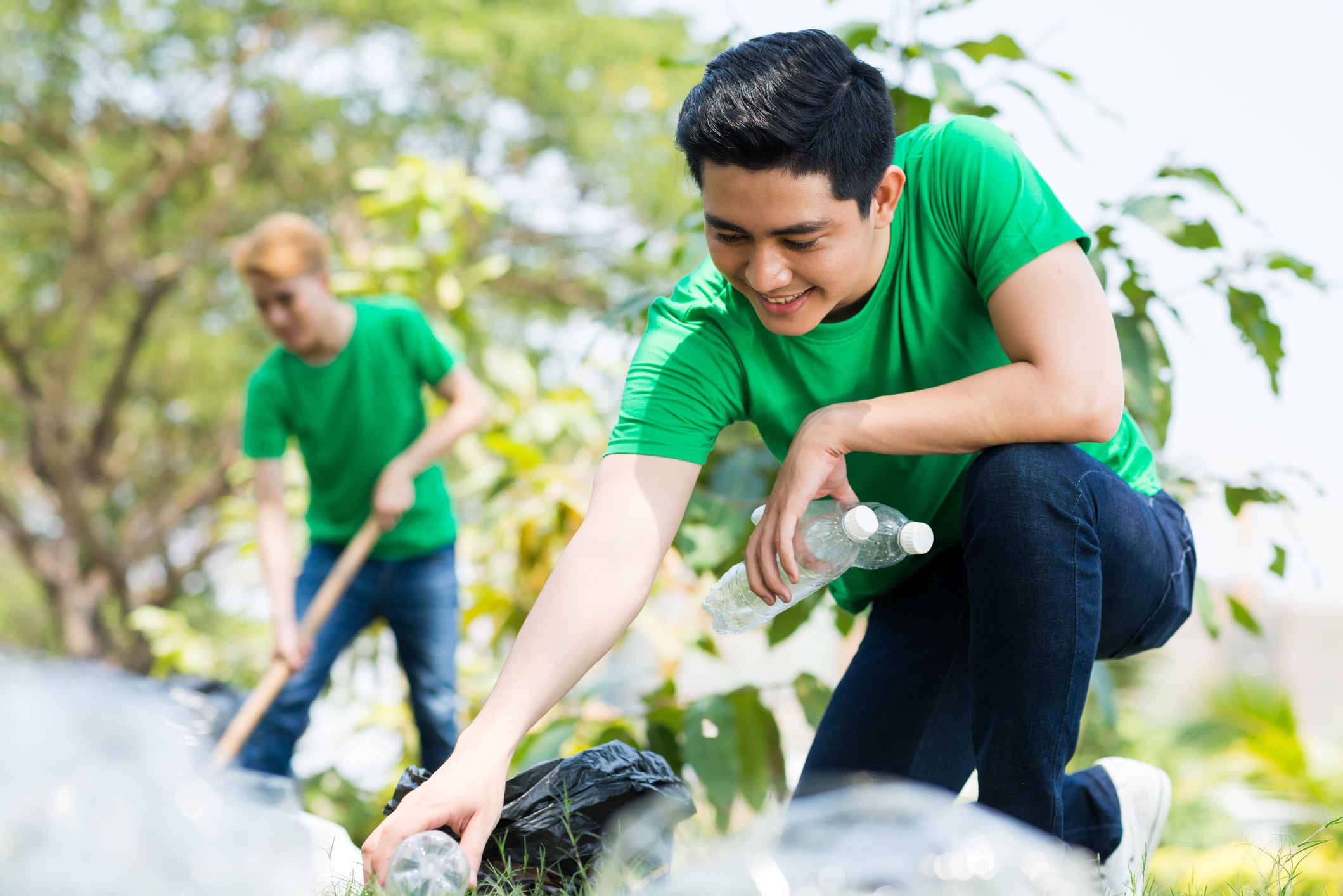Students today care about sustainability. UNESCO reports that 91 percent of students “agree their place of study should actively incorporate and promote sustainable development.” The disconnect often lies in what students can do to promote sustainability in their college lives.
While some students may major in environmental or sustainability-related fields, students of all fields are able to participate in sustainable practices, programs, and clubs on-campus and act on their passions while they’re in college. There are many student-led programs that allow students to get involved.
Tonie Miyamoto, Director of Communications and Sustainability for Housing and Dining Services at Colorado State University, described the many student sustainability programs, and the ways in which they collaborate. She explained that the Ecoleaders program on campus is a peer education program for campus housing, where one ecoleader per building is assigned to engage the students who live in their buildings. A zero waste team takes on waste reduction initiatives. There are many other sustainability programs, but there are two organizations that work to increase communication and collaboration among these programs.
“There are two umbrella organizations on campus. The President Sustainability Commission is meant to help connect the dots across sustainability in terms of academics, research, operations, engagement and administration across campus. And then the Student Sustainability Center is really there as an umbrella for all of the different student organizations,” said Miyamoto.
She explained that the Student Sustainability Center brings the student organizations together in a monthly meeting, where these different organizations can get together and talk about their initiatives, as well as make connections between organizations.
“We have so many different organizations, and that Student Sustainability Center monthly meeting gives students a chance to connect. They also do a bulletin each week that shares all of the things happening on campus that different student organizations are putting together,” said Miyamoto.
The University of Michigan’s sustainability initiatives operate under a similar structure, and the various programs that contribute to sustainability on campus fall under the brand name, “Planet Blue.”
“[Planet Blue] is everything from education, to research, to operations. Everything that all 93,000 people on campus are doing to try to make our campus more sustainable,” said Kelly Jones, Coordinator of the Planet Blue Ambassadors Program at the University of Michigan.
Jones said that there are over 60 student organizations on campus that are focused on the campus sustainability. As the coordinator of the Planet Blue Ambassador Program, Jones leads students in introducing other students to campus sustainability.
“It’s an introductory training and a good starting point where people can learn about U-M sustainable initiatives, Planet Blue, and how all of us can help out – as individuals through how we work here as staff members, and how students can live and learn in a way that supports our environment,” said Jones.
Student sustainability programs often focus on specific areas related to student passions. Miyamoto gave the example of a student who was particularly concerned with issues surrounding pollinators. Due to this student’s passion for the issue, many departments and groups were involved–the horticulture department, biology department, and the Student Apiculture Club–to certify CSU as a Certified Bee Campus USA. Jones also pointed out the excitement around food sustainability she sees students acting on as they get involved with the campus farm, food pantry, and community gardens.
This model of engaging both students and faculty that are passionate about sustainability topics is why Miyamoto believes sustainability programs are successful on CSU’s campus.
“Students are our future so [student involvement in sustainability] is really critical on campus. It doesn’t work if programs are only from the administration top-down. It’s also not successful if it’s only a grassroots model–[sustainability programs] work best when the two can come together,” said Miyamoto.
Students can have great ideas, but will need a platform to pitch and implement these ideas. On the reverse angle, Miyamoto said that the university has a goal for 100 percent renewable electricity by 2030, but in order to attain this goal, students have to be actively engaged.
“We’re a Research I university and it’s important that students are part of that research. It’s important that we have majors and minors related to sustainability in all of our colleges, and it’s important that students have organizations to pursue their passions. It takes all of it,” said Miyamoto.
Miyamoto also pointed out the general collaborative culture of a university and how this helps propel sustainable initiatives. CSU’s biennial climate survey reports that 93 percent of students and 92 percent of staff say that sustainability is important or very important to them. This shows that the makeup of CSU is very sustainability-focused, which explains the push for these types of programs.
“[Sustainability] is baked into our university. It’s people coming together who have that shared passion and they may come at it in very different ways, but I think that’s what’s cool about higher education–getting to explore different perspectives and viewpoints, and finding common ground,” said Miyamoto.
Jones also pointed out how effective students can be in enacting change when they are passionate about certain issues.
“Here, as with most universities, the students have the loudest voice. You’re here to learn and this university is here for your growth and development, and so the university listens to student interest. That’s why it’s important for students to attend sustainability town halls, be informed, or become a Planet Blue ambassador, so they know what’s going on on their campus,” said Jones.
Students have a lot of passion and great ideas, especially when it comes to sustainability. In the setting of a university, students have the ability to make major changes to their college. Students can simply minimize their own carbon footprint by using digital study tools or utilizing campus compost and other waste-reduction methods, or they can contribute to programs that enact campus-wide change. Visit your student center to see which programs you can get involved in and that focus on the issues you care most about.



